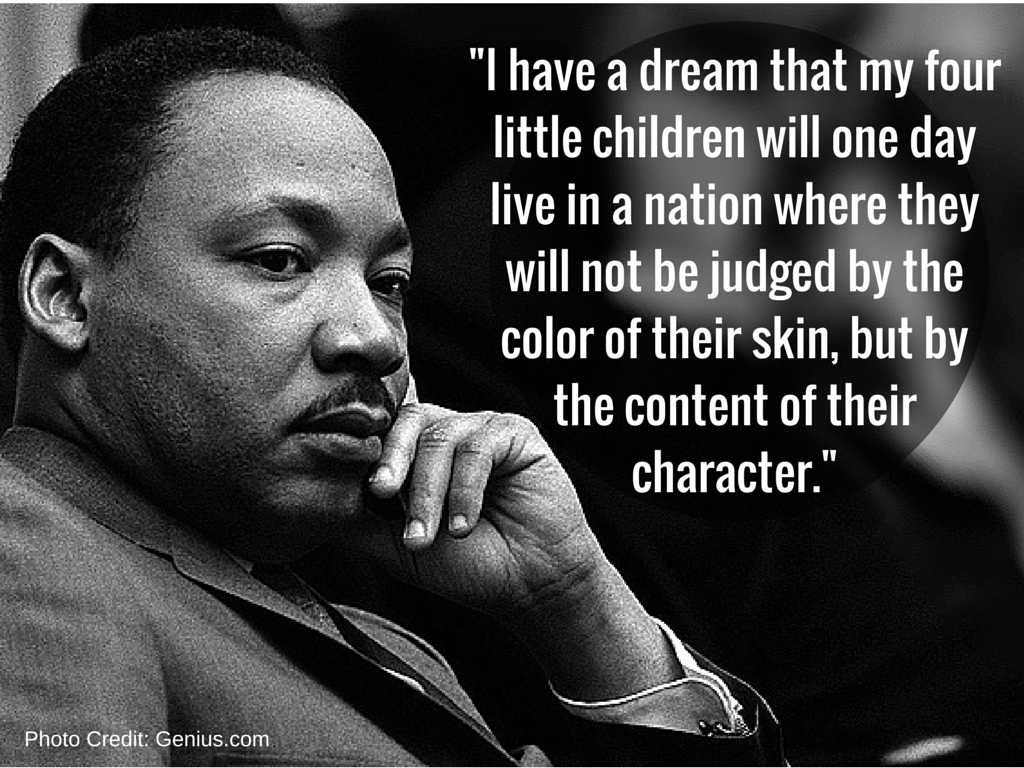
It is obvious today that America has defaulted on this promissory note insofar as her citizens of color are concerned. This note was a promise that all men, yes, black men as well as white men, would be guaranteed the unalienable rights of life, liberty, and the pursuit of happiness. When the architects of our republic wrote the magnificent words of the Constitution and the Declaration of Independence, they were signing a promissory note to which every American was to fall heir. In a sense we have come to our nation's capital to cash a check. This content is not available due to your privacy preferences. So we have come here today to dramatize a shameful condition. One hundred years later, the Negro is still languishing in the corners of American society and finds himself an exile in his own land. One hundred years later, the Negro lives on a lonely island of poverty in the midst of a vast ocean of material prosperity. One hundred years later, the life of the Negro is still sadly crippled by the manacles of segregation and the chains of discrimination. It came as a joyous daybreak to end the long night of their captivity.īut one hundred years later, the Negro still is not free.

This momentous decree came as a great beacon light of hope to millions of Negro slaves who had been seared in the flames of withering injustice. I am happy to join with you today in what will go down in history as the greatest demonstration for freedom in the history of our nation.įive score years ago, a great American, in whose symbolic shadow we stand today, signed the Emancipation Proclamation. Read the full text of the speech as he delivered it that day: His initial drafts did not contain any references to a dream at all, according to his closest advisers.īefore the speech, King allegedly told an aide that he wanted the remarks to be "a Gettysburg Address" of sorts. He had spoken about his dream during speeches in Birmingham and Detroit earlier that year. quotes that raise eyebrows instead of sanitizing his legacyīut August 28 was not the first time King had uttered the most famous four words from his remarks that day. King's iconic "I Have a Dream" speech that immediately took its place as one of the greatest in U.S. Medgar Evers, whose husband had been slain by a segregationist only two months prior, union leader Walter Reuther - and a performance by the great gospel singer Mahalia Jackson. congressman more than 50 years later, Mrs. The days event's included speeches from the likes of John Lewis, a civil rights activist who currently serves as a U.S.

for the March on Washington for Jobs and Freedom. On a hot summer day in 1963, more than 200,000 demonstrators calling for civil rights joined Dr.


 0 kommentar(er)
0 kommentar(er)
